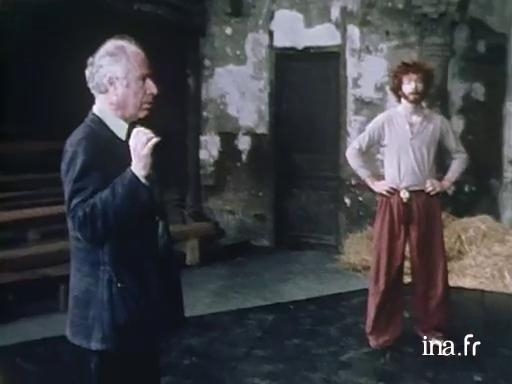Peter Brook at the Bouffes du Nord

Information
Conversation with Peter Brook regarding the Bouffes du Nord theatre, where he and his company have settled. According to him, it's an extraordinary location because it has a soul.
- Europe > France > Ile-de-France > Paris
- Europe > United Kingdom
Context
Peter Brook, born in London in 1925, started a brilliant career as a cinematic director at 18 years old. Following the example of Vilar and Strehler, he participated in the renewal of the European post-war stage, with Shakespeare texts and those of other contemporary authors like Sartre, Anouilh, Shaw and Miller.
In 1955, he met success outside Great Britain withTitus Andronicus. In 1962, during the rehearsals ofKing Lear, he decided to separate himself from the theatrical world and discovered the value of "The Empty Space". From then on, his work would mainly be based on actors' presence. He began theatrical research which led to the creation of the International Centre for Theatre Research after Jean-Louis Barrault invited him to lead an international workshop in Paris in 1968, where he moved to 1970. Then followed three years of travelling in Iran, Africa and the United States during which he applied himself to creating artistic methods of communication between the distant cultures.
In 1974 he reopened the neglected theatre Bouffes du Nord withTimon of Athensby Shakespeare, a place that he still works in. This space in ruins, neutral but not sterile, left Brook and his team the freedom to experiment with playful pleasure and the readability that characterises his theatrical approach. At the Avignon Festival in 1985, he put on theMahabharata in open air, the mythical Indian epic that lasts nine hours and remains one of the greatest performance successes of all time.




